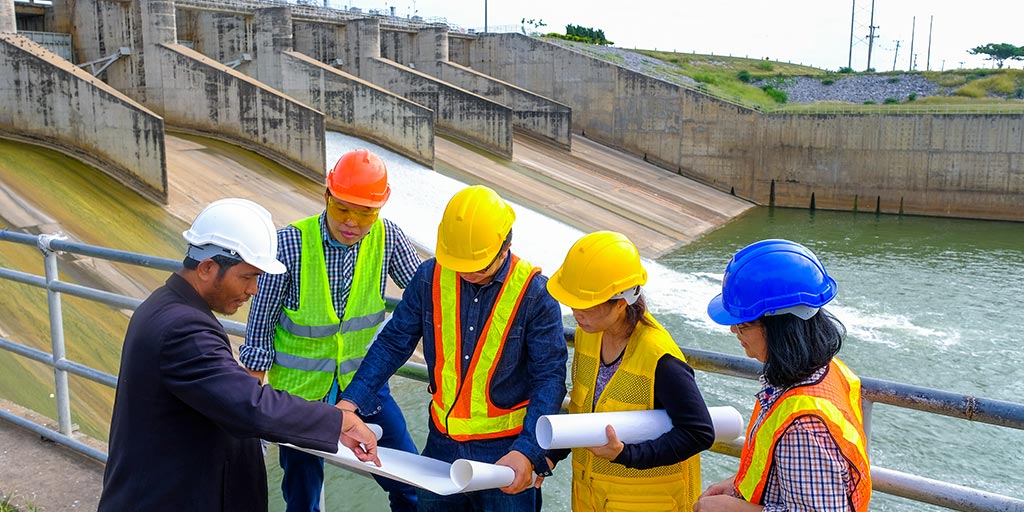The Innovations Of Civil Engineering In Flood Control

Hello there, fellow internet wanderer! Today, let's talk about what it takes to be a good flood control engineer. Yes, you read that right. We're going to talk about engineers who deal with floods. Exciting, isn't it? No? Okay, bear with me, there's more to it than just water and engineering jargon.
Now, let me ask you a question. Have you ever been caught in a flood? As in, water rising rapidly around you and you have no idea what to do? I have, and let me tell you, it's not a pretty sight. Which is why flood control engineers are important. They ensure we don't drown (pun intended) in water-related disasters.
But what exactly does a flood control engineer do? Well, my dear friend, they are responsible for designing and implementing systems that help control and prevent flooding. These systems can range from levees and dams to flood walls and drainage channels.
Now, let's get technical. Flood control engineers analyze rainfall data, watershed characteristics, and water flow patterns to determine areas that are prone to flooding. Based on this data, they design and implement flood mitigation and prevention measures. It's not just about building walls and levees, but also about developing plans and procedures that help manage flood-related emergencies.
Interested in becoming a flood control engineer? Great! Here are some skills you should have:
- Strong mathematical skills (calculus, geometry, and trigonometry are your friends)
- Good analytical and problem-solving skills (you'll spend a lot of time analyzing data and designing solutions)
- Great communication skills (you'll need to explain your findings and designs to people outside your field)
- Construction knowledge (you'll be working with builders and architects to bring your designs to life)
- Knowledge of local and national flood control regulations (these regulations change constantly, so staying updated is important)
Okay, okay, enough about the technical side. You're probably wondering about the day-to-day life of a flood control engineer. Well, it can be pretty hectic (but exciting!).
For example, a flood control engineer might:
- Inspect current flood control infrastructure to ensure it's in good condition
- Analyze data to determine areas that are at risk of flooding
- Design and implement solutions to mitigate the risk of flooding in those areas
- Develop plans and procedures to manage flood-related emergencies
- Work with other professionals (architects, builders, city planners, etc.) to ensure projects are completed on time and within budget
Phew, that's a lot of work! But it's worth it, knowing that you're helping keep people safe.
Alright, we're nearing the end of our adventure. Before we go, let's address some commonly asked questions (FAQ-style!) about flood control engineering:
Q: What education do I need to become a flood control engineer?
A: Typically, you'll need a bachelor's degree in civil engineering or a related field. Some states and organizations require a professional engineering license, which requires passing a test and having a certain amount of work experience.
Q: How much money can I make as a flood control engineer?
A: According to the Bureau of Labor Statistics, civil engineers (including flood control engineers) make a median salary of $87,060 per year.
Q: Is this field growing?
A: Yes! The Bureau of Labor Statistics predicts that civil engineering jobs will grow by 6% from 2018 to 2028.
Well, my friend, that's all I have to say about flood control engineering. Thanks for sticking around and learning more about this important field. Stay safe and dry!


Post a Comment for "The Innovations Of Civil Engineering In Flood Control"